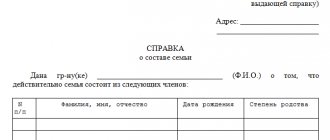Photo: m24.ru/Mikhail Sipko
Recently, cases of unfair transfer of residential premises to non-residential premises have become more frequent in the capital. By opening shops on the ground floors of residential buildings, unscrupulous entrepreneurs take advantage of loopholes in the laws and deceive residents. Read more in the material m24.ru.
Definition of residential and non-residential premises
According to the law, residential premises are intended only for the residence of citizens (Housing Code, Art. 17, Part 1). Residential premises are a residential building (part of it), apartment (part of it), room (Housing Code Art. 16 Part 1). Note that the “part” of a house and apartment refers to living rooms associated with auxiliary premises that are used to meet the household needs of citizens (Housing Code Art. 16, Part 2 and Part 3).
In this case, a premises is recognized as residential if it is isolated, belongs to real estate and complies with the standards of suitability (technical, sanitary) for permanent residence of citizens (Housing Code Art. 15 Part 2).
As for non-residential premises, according to the “Rules for the provision of public utilities” (approved by Government Decree No. 354 of 05/06/2011), in apartment buildings they are the premises noted in the design (technical) documentation for a high-rise building, or in its electronic passport, as not related to residential premises and not included in the common property of owners of multi-storey housing.
In the information letter of the Supreme Arbitration Court of the Russian Federation No. 53 dated June 1, 2000, non-residential premises are defined as a real estate object that is different from the building (structure) in which it is located, but is inextricably linked with it.
You can send a message to the executive authorities of the city of Moscow as part of a pre-trial appeal.
Pre-trial (out-of-court) procedure for appealing decisions and actions (inaction) of the Department, the State Budgetary Institution of the MFC of the city of Moscow and the State Institution of the Moscow Center of Science, officials, civil servants of the Department, employees of the MFC and the State Institution of the Institution of the Mtsn
1. The applicant has the right to file a complaint in a pre-trial (out-of-court) manner about the decisions taken (committed) in the provision of public services, decisions and (or) actions (inaction) of the Department, the State Budgetary Institution of the MFC of the city of Moscow and the State Institution of the MCN, officials, civil servants of the Department, employees of the MFC and the State Institution of the MCN.
2. The filing and consideration of complaints is carried out in the manner established by Chapter 2.1 of the Federal Law of July 27, 2010 N 210-FZ “On the organization of the provision of state and municipal services”, the Regulations on the specifics of filing and consideration of complaints about violations of the procedure for the provision of public services in the city of Moscow , approved by Decree of the Moscow Government of November 15, 2011 N 546-PP “On the provision of state and municipal services in the city of Moscow”, these Regulations.
3. Applicants may file complaints in the following cases:
3.1. Violation of the deadline for registering a request (application) and other documents necessary for the provision of public services.
3.2. Requirements from the applicant:
3.2.1. Documents or information or the implementation of actions, the provision or implementation of which is not provided for by the regulatory legal acts of the Russian Federation and the city of Moscow for the provision of public services, including documents obtained using interdepartmental information interaction.
3.2.2. Applications for the provision of services not included in the list of services approved by the Moscow Government that are necessary and mandatory for the provision of public services.
3.2.3. Payment of fees for the provision of public services not provided for by regulatory legal acts of the Russian Federation and the city of Moscow.
3.2.4. Documents or information, the absence and (or) unreliability of which was not indicated during the initial refusal to accept documents necessary for the provision of a public service, or in the provision of a public service, except for the cases provided for in paragraph 4 of part 1 of Article 7 of the Federal Law of July 27, 2010 N 210-FZ “On the organization of the provision of state and municipal services.” This provision, in the event of a pre-trial (out-of-court) appeal by the applicant against decisions and actions (inaction) of the MFC, an MFC employee regarding the initial refusal to provide a public service, applies if the MFC is entrusted with the function of providing the relevant public services in full in the manner specified in Part 1.3 Article 16 of the Federal Law of July 27, 2010 N 210-FZ “On the organization of the provision of state and municipal services”.
3.3. Violations of the deadline for the provision of public services.
3.4. Refusal to the applicant:
3.4.1. In accepting documents, the submission of which is provided for by the regulatory legal acts of the Russian Federation and the city of Moscow for the provision of public services, on grounds not provided for by the regulatory legal acts of the Russian Federation and the city of Moscow.
3.4.2. In the provision of public services on grounds not provided for by the regulatory legal acts of the Russian Federation and the city of Moscow.
3.4.3. In the correction of typographical errors and errors in documents issued as a result of the provision of public services, or in case of violation of the established deadline for such corrections.
3.5. Other violations of the procedure for providing public services established by regulatory legal acts of the Russian Federation and the city of Moscow.
4. Complaints about decisions and (or) actions (inaction) of officials, civil servants of the Department and employees of the State Institution of the MCN are considered by the head (authorized deputy head) of the Department.
Complaints about decisions and (or) actions (inaction) of the head of the Department, including decisions made by him or his authorized deputy on complaints received in a pre-trial (extrajudicial) manner, are considered by a higher executive body of the city of Moscow in accordance with clauses 5.6, 6 Appendix 6 to the resolution of the Moscow Government of November 15, 2011 N 546-PP “On the provision of state and municipal services in the city of Moscow.”
Complaints about decisions and (or) actions (inaction) of MFC employees committed when providing government services in accordance with the interaction agreement concluded with the Department are considered by the director (authorized deputy director) of the State Budgetary Institution of the MFC of the city of Moscow.
Complaints about decisions and (or) actions (inaction) of the director (authorized deputy director) of the State Budgetary Institution of the MFC of the city of Moscow, accepted on complaints received in a pre-trial (extrajudicial) manner, are considered by a higher executive body of the city of Moscow in accordance with paragraphs 5.6, 6 of Appendix 6 to Resolution of the Moscow Government of November 15, 2011 N 546-PP “On the provision of state and municipal services in the city of Moscow.”
5. Complaints can be submitted to the bodies authorized to consider complaints in accordance with these Regulations (hereinafter referred to as the bodies and organizations authorized to consider complaints), in writing on paper, in electronic form in one of the following ways:
5.1. Upon personal application by the applicant (applicant’s representative).
5.2. Through MFC.
5.3. By post.
5.4. Using the Portal if appropriate technical capabilities are available.
5.5. Using the official websites of bodies and organizations authorized to consider complaints on the Internet.
6. The complaint must contain:
6.1. The name of the body (organization) authorized to consider the complaint or the position and (or) last name, first name and patronymic (if any) of the relevant official to whom the complaint is sent.
6.2. The name of the executive authority of the city of Moscow, the MFC or the position and (or) surname, first name, patronymic (if any) of the official, civil servant, employee whose decisions and (or) actions (inaction) are being appealed.
6.3. Last name, first name, patronymic (if any), information about the place of residence of the applicant - an individual, including one registered as an individual entrepreneur, or name, information about the location of the applicant - a legal entity, as well as contact telephone number(s), address (addresses) email (if available) and postal address to which the response should be sent to the applicant.
6.4. The date of submission and registration number of the request (application) for the provision of a public service (except for cases of appealing the refusal to accept the request and its registration).
6.5. Information about decisions and (or) actions (inactions) that are the subject of appeal.
6.6. Arguments on the basis of which the applicant does not agree with the appealed decisions and (or) actions (inactions). The applicant may submit documents (if any) confirming the applicant’s arguments, or copies thereof.
6.7. Applicant's requirements.
6.8. List of documents attached to the complaint (if any).
6.9. Date of filing the complaint.
7. The complaint must be signed by the applicant (his representative). If a complaint is filed in person, the applicant (applicant's representative) must provide an identification document.
The authority of the representative to sign the complaint must be confirmed by a power of attorney issued in accordance with the legislation of the Russian Federation.
The powers of a person acting on behalf of an organization without a power of attorney on the basis of the law, other regulatory legal acts and constituent documents are confirmed by documents certifying his official position, as well as the constituent documents of the organization.
The status and powers of legal representatives of an individual are confirmed by documents provided for by federal laws.
8. A received complaint must be registered no later than the working day following the day of receipt.
9. The maximum period for consideration of a complaint is 15 working days from the date of its registration. The period for consideration of the complaint is 5 working days from the date of its registration in cases of appeal by the applicant:
9.1. Refusal to accept documents.
9.2. Refusal to correct typos and errors made in documents issued as a result of the provision of public services.
9.3. Violations of the deadline for correcting typos and errors.
10. Based on the results of consideration of the complaint, a decision is made to satisfy the complaint (in whole or in part) or to refuse to satisfy the complaint.
11. The decision must contain:
11.1. The name of the body or organization that considered the complaint, position, surname, first name, patronymic (if any) of the official who made the decision on the complaint.
11.2. Details of the decision (number, date, place of adoption).
11.3. Last name, first name, patronymic (if any), information about the place of residence of the applicant - an individual or name, information about the location of the applicant - a legal entity.
11.4. Last name, first name, patronymic (if any), information about the place of residence of the applicant’s representative who filed the complaint on behalf of the applicant.
11.5. Method of filing and date of registration of the complaint, its registration number.
11.6. Subject of the complaint (information about the decisions, actions, or inactions being appealed).
11.7. The circumstances established during the consideration of the complaint and the evidence confirming them.
11.8. Legal grounds for making a decision on a complaint with reference to the applicable regulatory legal acts of the Russian Federation and the city of Moscow.
11.9. The decision taken on the complaint (conclusion on the satisfaction of the complaint or refusal to satisfy it).
11.10. Measures to eliminate identified violations and deadlines for their implementation (if the complaint is satisfied).
11.11. Information about the actions carried out by the executive authority of the city of Moscow, the local government body, an organization subordinate to the executive authority and the local government body that provides public services, the MFC in order to immediately eliminate identified violations in the provision of public services, as well as apologies for the inconvenience caused and information about further actions that the applicant needs to take in order to receive public services (if the complaint is satisfied).
11.12. Reasoned explanations about the reasons for the decision made (in case of refusal to satisfy the complaint).
11.13. Procedure for appealing a decision.
11.14. Signature of the authorized official.
12. The decision is made in writing using official forms.
13. The measures to eliminate identified violations specified in the decision include:
13.1. Cancellation of previously made decisions (in whole or in part).
13.2. Ensuring the acceptance and registration of the request, execution and issuance of a receipt to the applicant (in case of evasion or unreasonable refusal to accept documents and their registration).
13.3. Ensuring registration and delivery to the applicant of the result of the provision of a public service (in case of evasion or unreasonable refusal to provide a public service).
13.4. Correction of typos and errors made in documents issued as a result of the provision of public services.
13.5. Refund to the applicant of funds, the collection of which is not provided for by the regulatory legal acts of the Russian Federation and the city of Moscow.
14. The body or organization authorized to consider the complaint refuses to satisfy it in the following cases:
14.1. Recognition of the appealed decisions and (or) actions (inactions) as legal and not violating the rights and freedoms of the applicant.
14.2. Filing a complaint by a person whose powers have not been confirmed in the manner established by regulatory legal acts of the Russian Federation and the city of Moscow.
14.3. The applicant does not have the right to receive public services.
14.4. Availability:
14.4.1. A court decision on the applicant’s complaint with identical subject matter and grounds that has entered into legal force.
14.4.2. Decisions on a complaint made earlier in a pre-trial (out-of-court) manner in relation to the same applicant and on the same subject of the complaint (except for cases of appealing previously made decisions to a higher authority).
15. The complaint must be left unanswered on its merits in the following cases:
15.1. The presence in the complaint of obscene or offensive language, threats to the life, health and property of officials, as well as members of their families.
15.2. If the text of the complaint (part of it), last name, postal address and email address are not readable.
15.3. If the complaint does not indicate the name of the applicant (the applicant's representative) or the postal address and email address to which the response should be sent.
15.4. If the body or organization authorized to consider the complaint received a request from the applicant (the applicant’s representative) to withdraw the complaint before a decision on the complaint is made.
16. The decision to satisfy the complaint or to refuse to satisfy the complaint is sent to the applicant (the applicant’s representative) no later than the working day following the day of its adoption, to the postal address specified in the complaint. At the request of the applicant, the decision is also sent to the email address specified in the complaint (in the form of an electronic document signed with the electronic signature of an authorized official). In the same manner, the applicant (the applicant’s representative) is sent a decision on the complaint, in which only an email address is indicated for the response, and the postal address is missing or cannot be read.
17. If the complaint is left unanswered on the merits, the applicant (his representative) is sent, no later than the working day following the day of registration of the complaint, a written motivated notification indicating the grounds (except for cases where the postal address and email address are not indicated in the complaint email for a response or they are unreadable). The notice is sent in the manner established for sending a decision on a complaint.
18. A complaint filed in violation of the rules on competence established by paragraph 5.4 of these Regulations is sent no later than the working day following the day of its registration to the body authorized to consider the complaint, with simultaneous written notification to the applicant (his representative) about the redirection complaints (except for cases where the complaint does not indicate a postal address and email address for a response or they are not legible). The notice is sent in the manner established for sending a decision on a complaint.
19. Filing a complaint in a pre-trial (out-of-court) manner does not exclude the right of the applicant (applicant’s representative) to simultaneously or subsequently file a complaint in court.
20. Informing applicants about the judicial and pre-trial (extrajudicial) procedure for appealing decisions and (or) actions (inactions) committed in the provision of public services should be carried out by:
20.1. Placing relevant information on information stands or other sources of information in places where public services are provided.
20.2. Consulting applicants, including by telephone, email, and in person.
21. If, during or as a result of consideration of a complaint, signs of an administrative offense or crime are established, the official empowered to consider the complaint immediately forwards the available materials to the prosecutor's office.
If violations of the procedure for the provision of public services of the city of Moscow are identified, the responsibility for which is established by the Code of the City of Moscow on Administrative Offenses, the official empowered to consider the complaint must also send copies of the available materials to the Main Control Department of the city of Moscow within two working days following after the day the decision on the complaint was made (but no later than the working day following the day of expiration of the period established by federal legislation for consideration of complaints about violations of the procedure for the provision of public services).
What kind of housing is permissible to register as a non-residential fund?
The usual minimum area of housing transferred to non-residential stock is a “studio” or one-room apartment. Moreover, the living space being redesigned cannot be located above residential premises, only above commercial ones. Considering the requirement for a separate entrance, apartments no higher than the second floor can be made non-residential, ideally premises on the ground or first floor.
of one room into non-residential
from the composition of the apartment is not directly prohibited by law, but in practice this is difficult to achieve. According to the Housing Code (Article 22), the premises being transferred require a separate entrance, the presence of communications (water, heating, sewerage, electricity) separate from other premises of the apartment and documentary evidence of the owner’s rights.
Let us note that the configuration redevelopment of an apartment, as well as a room in a residential high-rise building, is prohibited by law (Housing Code, Article 25, Part 2).
Transfer of a mortgaged apartment
into non-residential real estate is unacceptable without the approval of the mortgagee - the creditor bank. It is prohibited to dispose of an apartment that is under a mortgage encumbrance without the permission of the creditor (Civil Code Art. 346 Part 2).
But even if the bank finds it beneficial to transfer the mortgaged housing to a commercial fund, a legislative barrier will arise - Article 22 of the Housing Code directly states that the transfer of living space to a non-residential fund in the presence of encumbrances (mortgage collateral) is impossible. Therefore, for a mortgaged apartment, the only option for re-registration into non-residential premises is a judicial procedure.
Change the status of an individual private house
from residential to non-residential is possible. However, not only the building is taken into account here, but also the land plot under the building. On plots for individual housing construction, it is permissible to build exclusively residential buildings and auxiliary courtyard buildings, and not commercial real estate.
To register a private house as non-residential, you will also need to change the intended purpose of the land plot, or part of it (Law No. 172-FZ “On Land Transfer”) by submitting an application to the local administration.
Directly redesign part of the premises of a residential building
The law does not allow for commercial use. Living in one part of the house and using the second for a store or office allows for one option - allocating part of the residential building in kind. To do this, you will need to divide the house in two, organize an independent entrance to each part and conduct separate communications.
It will also be necessary to change the purpose of the land plot under the “commercial” part of the house, which will become non-residential.
To redesign a residential high-rise building
for a non-residential building as a whole, it is necessary to purchase all residential premises of the owners (apartments). At the same time, the preparation of technical documentation on engineering communications (clauses 20 and 21, part 2, article 2 of the law No. 384-FZ “Technical Regulations”) is not required - the building was originally equipped with them.
Changing the type of foundation of a part of a building
It is known that it is impossible to make a non-residential part of an apartment. Is it possible to do this with part of the house? Practice shows that this is possible, however, it is here that some imperfections of the housing code, which are noted by many experts in the field of jurisprudence, can fully manifest themselves.
One administration will equate a residential building to an apartment and refuse to transform part of the house. Another two-story private house will be considered like an apartment building and consent will be given. As with the purpose of a plot of land, a lot of preliminary work is needed here. Even in the interpretation of laws, some subjectivity is not excluded, so it is better to focus on local conditions.
And in conclusion, a little hint: in some cases it is not at all necessary to allocate non-residential premises in your home in order to do business. For example, if a person is a private tutor, hairdresser-stylist, accountant (various options are possible). In this case, it is quite possible to turn one of the rooms of the house into an office only by design, without changing the purpose. The main thing is that clients do not disturb their neighbors, but usually there are no problems in this regard.
Converting a private home into an office building can be quite an expensive and time-consuming undertaking. Only a careful approach and good preparation will allow you to carry out the entire procedure without unnecessary costs and hassle.
Conditions for re-registration of housing into non-residential stock
The legislation of the Russian Federation reflects the rules defining the circumstances of the transfer of residential property to the sphere of commercial use. Most of the conditions are established by the Housing Code (Chapter 3):
- The permissible location of the apartment being converted as part of a multi-storey building is 1-3 floors. The premises of the second and third floors are subject to transfer to non-residential property if there are non-residential real estate objects underneath them;
- The room being redesigned must have a separate entrance or allow independent entry in the future. Depending on the type of commercial use in the future, non-residential premises may require an emergency exit (SP 112.13330.2011);
- the permissible number of registered citizens in an apartment transferred to non-residential use is zero. Registration is possible only in residential real estate (Part 3 of Article I “Rules for registration and removal of citizens of the Russian Federation...”). Those. before submitting documents for re-registration of the premises, it is necessary to reset the registration number of residents in this apartment to zero;
- a high-rise building, the apartment of which is transferred to non-residential, should not be in disrepair, require major repairs, be subject to demolition or reconstruction (Article 10, Chapter II of the Regulations “On recognizing premises as residential”);
- re-registration of an apartment as a non-residential property is not possible if the premises are under any encumbrance (seizure), including a mortgage and a loan agreement. Transfer of encumbered housing to non-residential premises is permitted only after the termination of the pledge;
- the presence of illegal alterations in an apartment being converted into non-residential is not permitted by law;
- conversion of an apartment into a non-residential building in a building of cultural and historical value will require permission from the authorized government agency (Article 47.3 of the Law No. 73-FZ “on cultural heritage sites”);
- Converting residential space to commercial use is impossible if there is no connection to engineering and communication systems.
Finally, the transfer of an apartment to non-residential housing is prohibited by law if this living space belongs to social housing (Housing Code Art. 22, Part 3.1.).
Is it possible to do this?
Practicing lawyers note: making an apartment or private house uninhabited is as easy as shelling pears only in theory. In practice, the procedure may not be feasible. For example, if it is impossible to arrange a separate entrance to an office apartment.
Against this background, transferring a private house to non-residential stock looks like a simple matter. There are not many residents who will have to “beg” for adjacent territory. If the house is two or three floors, but belongs to one person, then all floors can be converted into offices.
In addition, there is almost always a small area near the house, which is also very useful. For example, for a parking lot.
The following video explains whether it is possible to transfer your private house or apartment on the ground floor to non-residential premises, and how to turn them into, for example, a cafe:
The procedure for transferring residential premises to non-residential premises
To obtain official “non-residential” status in relation to recent housing (apartments, houses), the owner will need to collect a fairly large set of documents from various authorities. The prepared documents are reviewed by the Property Management Department and its interdepartmental commission.
Stage zero: neighbors' opinion
Since preparing documents is a costly process - it will cost several hundred thousand rubles - the owner should first “test” the mood of the neighbors in the high-rise building.
According to the Housing Code, the consent (written) of the owners of apartments adjacent to the premises being transferred is required (Article 23, Part 2.2.). The consent of all apartment owners of a high-rise building is also necessary, since the subsequent arrangement of a separate entrance with a staircase extension to a non-residential premises will require a reduction in the local area (Article 40 Part 2).
Please note that the transfer of a private house (part of a house) to a non-residential building does not require the approval of neighbors if there is no abutment between the walls of neighboring buildings.
First stage: documents from the BTI
You need to obtain a cadastral extract (floor plan), an explication and a technical passport with a technical plan for residential premises from the BTI. To order them, the applicant will need to confirm his identity and provide title documents for the property. In some regions, BTI employees also require the provision of documents substantiating ownership (donation agreement, purchase, inheritance certificate).
Stage two: ordering a project
You need to order a project and sketch for converting an apartment (house) into a non-residential premises. This requires the assistance of a licensed architect.
Third stage: coordination with the regional department of architecture
The owner sends the set of documents prepared at the early stages to the regional department of architecture to receive an approval certificate. The need for this document is approved by the administrative regulations of municipalities in the constituent entities of the Russian Federation when applying for a service for coordinating the reconstruction (redevelopment) of housing.
The prepared approval act must be signed by the fire department and SES, by energy suppliers and utility companies, and by the district administration.
Stage four: documents from the management company
It is necessary to obtain a certificate from the authority managing the high-rise building about the purpose of other premises located on the same floor as the premises being transferred to non-residential use.
The management company obtains a technical report describing the technical condition of the apartment building, indicating that it is not an emergency facility subject to demolition.
Fifth stage: protocol of consent of the owners in the neighborhood
The most difficult stage, largely depending on the location of the apartment (district). According to the Housing Code, it is impossible to do without the consent of the neighboring owners (Article 40, Part 2).
To simplify the task, it is better to raise the issue of transferring the premises to non-residential stock at a meeting of apartment owners organized by the management company - as one of the topics on the meeting agenda. According to the Housing Code, if the meeting is attended by more than 50% of the homeowners from the apartment building and if 2/3 of those present approve the construction of a separate entrance, then the decision will be considered legal (Article 45 Part 3 and Article 46 Part 1).
Stage six: refurbishment of the apartment
Having received the recorded consent of the legally permitted number of owners of residential premises in a high-rise building, it is necessary to start the process of redevelopment of the premises according to the architectural project prepared at the second stage.
Having completed the refurbishment of housing, it is necessary to call the housing commission of the State Housing Inspectorate to accept the result of the redevelopment according to the act (Housing Code Art. 28).
Seventh stage: permission to transfer
Having collected all the documents from the early stages and completed the redevelopment of the premises into a non-residential format, you need to request permission from the Property Management Department to transfer the apartment to a non-residential format.
Please note: the application must indicate the reason for re-registration of a residential apartment into a non-residential property! The application is accompanied by documents confirming the identity of the applicant and all documentation collected previously (legal documents are required!). If the applicant is a legal entity, then the constituent documents (copies) are submitted with the application.
The response of the interdepartmental commission, formed when the applicant applies to the Property Management Department, is issued after a maximum of 45 days (Housing Code Art. 23, Part 4). In case of refusal, the reason must be given. Usually they refuse due to incomplete documents, or non-compliance with the procedure for preparing the apartment for transfer (Housing Code Art. 24).
If refused, the applicant has the right to go to court to appeal if he considers the refusal to be unfounded. The owner also has the right to correct the comments of the interdepartmental commission and apply for re-registration as a non-residential property again. The number of applications is not limited by law.
If the transfer of the premises to the non-residential stock is approved, the owner remains to complete the re-registration process.
Eighth stage: payment of the difference in cost
Having permission from the Property Management Department, you need to submit an application to the BTI to determine the cost of transferring the premises to non-residential use. The application is accompanied by all previously collected documents and the protocol of the interdepartmental commission for consent to the re-registration of the living space.
The cost of the transfer will be determined by members of the commission of the department of privatization and housing stock management; their decision is documented in a protocol. The commission’s task is to establish the difference in the cost of a residential apartment and the non-residential premises formed from it.
The Privatization Commission takes into account numerous parameters, from the location and condition of an apartment building to assessing the benefits of commercial use. An important factor will be the intended purpose of the premises being converted into non-residential ones. As a rule, an apartment in non-residential status is more expensive.
By decision of the commission, the owner (applicant) is issued a protocol with the difference in the cost of the premises in residential and non-residential status. The applicant must pay the difference amount to a specified account through any bank.
Ninth stage: registration of re-registration
It is necessary to submit an application for transfer to a non-residential property and a set of documents to Rosreestr - through a local branch or MFC. Attached are an identification document, protocols from the Property Management Department and the BTI, a receipt for the paid fee and a cadastral passport of the apartment being re-registered. Registration of changes in the status of an apartment in Rosreestr will take 5-12 days.
Responsibility for using real estate for other purposes
If the owner of a residential premises carries out business in it without re-registration as a non-residential property, he will be fined by the State Housing Inspectorate (Administrative Code Articles 7.21 and 7.22).
In addition, neighbors in an apartment building, as well as other interested parties, have the right to demand the sale of residential premises at a public auction if the owner violates the rules for the operation and use of the apartment. It is enough for them to contact the local administration, after which the authorities will issue an order to the owner to eliminate violations in the use of real estate (Housing Code Art. 29 and Civil Code Art. 293).
The amount of work involved in converting residential real estate to non-residential property is significant, but the prospects for commercial use of the premises justify the time and money spent on the transfer.
To avoid wasting time and money, contact the specialists of our association.








